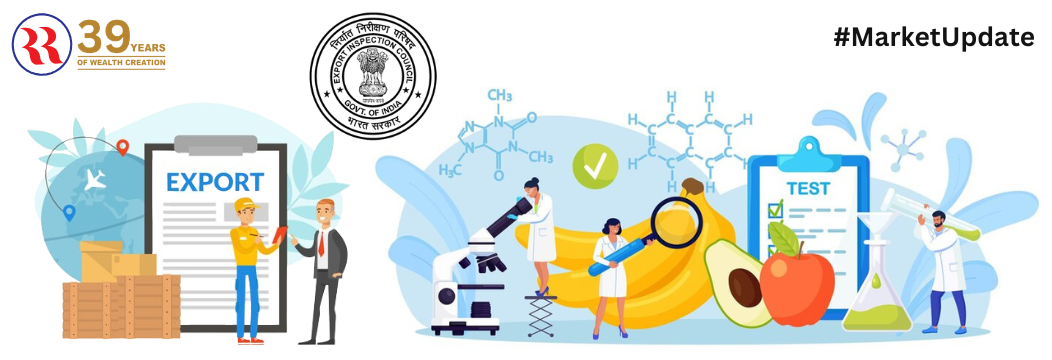The Export Inspection Council (EIC) is enhancing India's food testing facilities by setting up new laboratories in Ahmedabad, Faridabad, and Mangalore, while also working towards establishing Mutual Recognition Agreements (MRAs) globally to improve export efficiency. With 78 accredited laboratories and a twofold increase in export certifications over the last ten years, the EIC's reliable certification system is acknowledged by prominent international regulatory agencies, demonstrating India's dedication to maintaining global quality standards.

As a division of the Commerce Ministry, the Export Inspection Council (EIC) is gearing up to thoroughly improve food testing capabilities to bolster India's export growth. A comprehensive analysis to identify deficiencies in export food testing infrastructure is currently being conducted, with results anticipated within the next two to three months. The EIC functions as an advisory entity for the central government, overseeing quality control measures for goods destined for export. Its duties encompass notifying which products require pre-export quality inspections, setting quality benchmarks, and determining relevant quality control procedures.
Furthermore, the EIC plans to roll out an integrated traceability module designed to streamline the inspection, testing, and certification processes for exports. This module will utilize cutting-edge technologies, like IoT-based sampling methods, to boost efficiency and dependability. According to Nitin Kumar Yadav, Joint Secretary in the Department of Commerce, the Export Inspection Council (EIC) is expanding its network with the establishment of new laboratories in Ahmedabad, Faridabad, and Mangalore. To gain global recognition, the EIC is actively entering into Mutual Recognition Agreements (MRAs) and Memorandums of Understanding (MoUs) with various nations, with the aim of ensuring its processes and methods are globally accepted.
By promoting such agreements, the EIC aims to lower transaction expenses for exporters. "We are striving to secure MRAs with other countries, understanding their distinct requirements, and enhancing our capabilities accordingly," Yadav remarked. The EIC has made substantial advancements in its testing infrastructure, now functioning with 78 accredited laboratories across India. The number of export establishments authorized under the EIC system has increased from 794 to 1,446 over the past ten years.
The export certifications granted by the EIC and accepted by importing nations have also doubled, rising from 61,000 in 2013-14 to more than 120,000 in 2023-24. This increase highlights the confidence EIC has built with international regulatory entities through its strong quality control systems. Importantly, the EIC's certification processes are acknowledged by major global regulatory authorities, including those in the European Union, USA, Australia, Turkey, Korea, and Japan, emphasizing its compliance with international quality standards.
About RR Finance
An integrated financial services group, offering a wide range of financial products and services to corporations, institutions, high-net-worth individuals, and retail investors
Explore a wide range of investment opportunities with RR Finance
Disclaimer : The recommendations, suggestions, views, and opinions expressed by experts are their own and do not reflect the views of RR Finance. This news is for information purposes only, not investment advice.